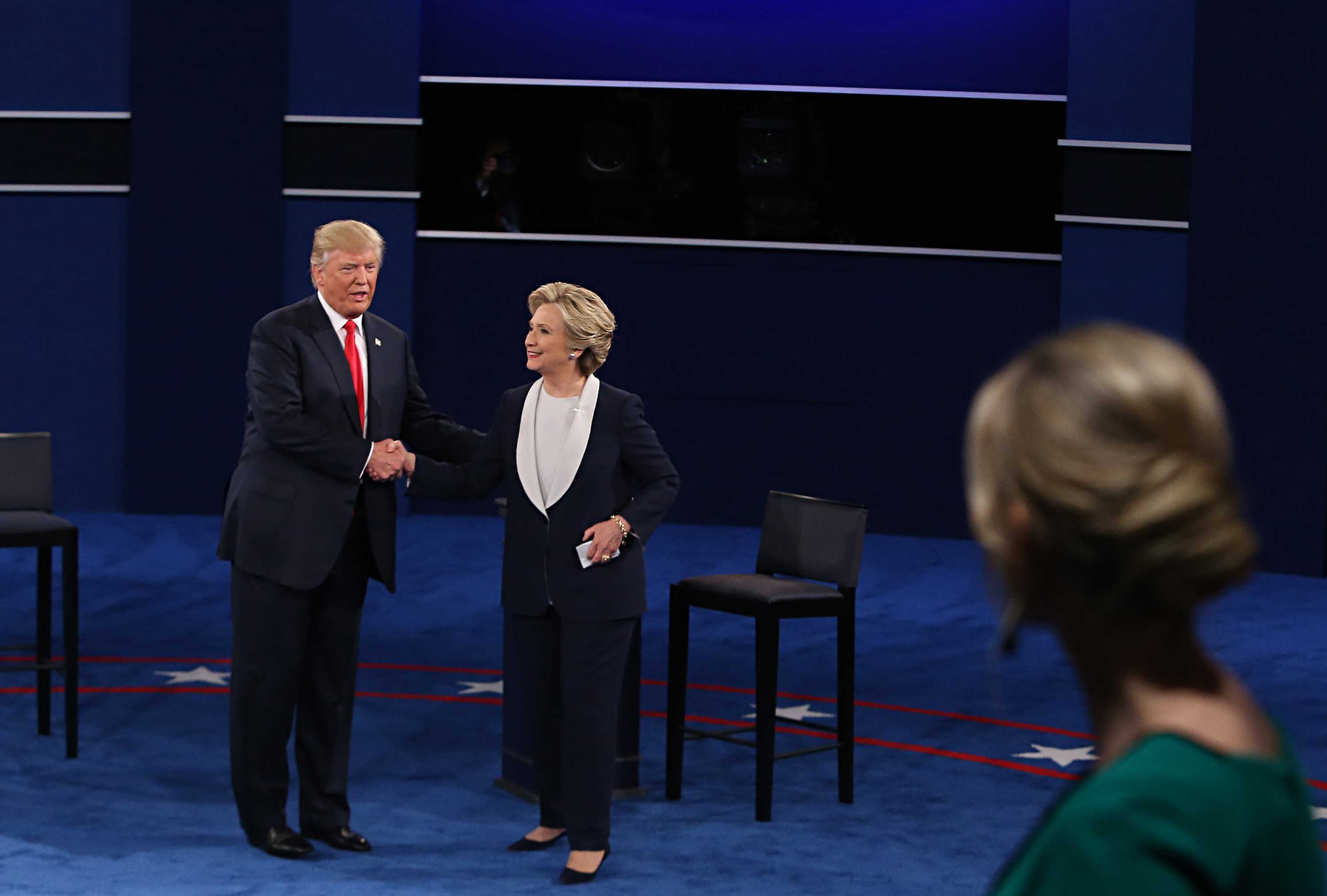Well, it did get worse.
For some reason, it took ridiculous comments made by Republican presidential candidate Donald Trump 11 years ago to fundamentally break his campaign. This tape has been called the definitive October surprise of this election year. In the last two debates, Democratic candidate Hillary Clinton has used this to further crush her populist opponent.
Trump would routinely bring up the issue of Clinton and her damning collection of emails, and she would, routinely, pivot. While there is a considerable amount of baggage leaving these candidates historically disliked, the likelihood of Clinton winning has grown immensely. FiveThirtyEight predicts an 75.3 percent chance of her winning, while Trump’s odds rank at 24.6 percent.
“But certainly,” said FiveThirtyEight editor-in-chief Nate Silver, “when a candidate has several weeks in a row of very negative coverage, you shouldn’t necessarily assume the polls conducted during that period represent the ‘new normal’ in the race.”
For Clinton’s supporters, this is a thankful clinch in the few weeks before Election Day. While Clinton’s chances could not be better, she has seemingly faced less scrutiny by the press about her baggage. WikiLeaks’ recently hacked email releases have further pointed to questionable ethics on her behalf.
How much the press scrutinizes her can be placed into question, as it seems these revelations do not go far enough in their magnitude and they feel more murky rather than crystalline.
“Mrs. Clinton has been exposed to have no core, to be someone who constantly changes her position to maximize political gain,” wrote Kimberly A. Strassel of the Wall Street Journal. The focus on Trump’s blatant minutia takes the attention away from all the questions needed to be directed at Clinton during her time as secretary of state.
Though it also shows the potency of leaking and timing. With where the election is this late in the game, these revelations about Trump obtained by the Washington Post and about Clinton hacked by WikiLeaks can only benefit one candidate or the other. Right now, Trump’s melting campaign can only further help Clinton get more votes, especially from the undecided(?) voters.
The question I am asking is, why now? It is lackluster that more of Clinton and Trump’s flaws are coming to light post-conventions. Had we known about Trump’s “locker talk” and Clinton’s continued email exposure, we likely would have two different candidates running for president right now. I am certain that revealing the Democratic National Committee’s demolition of Democratic candidate Bernie Sanders’ campaign in favor of Clinton earlier would have deviated votes away from her.
As for Trump, it boggles the mind for as to why these comments have hurt his campaign. After starting his campaign with a racist announcement speech and having since mocked a disabled reporter and consistent sexist comments, this is the climactic blow? Only this is the fatal wound? The questions on society’s level of tolerance and intellect have multiplied with this weakened urgency by the American public.
“They’re the dangers of groupthink,” said New York Times columnist Ross Douthat of Clinton’s presidential tendencies, “Of Beltway power worship, of a cult of presidential action in the service of dubious ideals.”
This groupthink has continued to keep Clinton’s place in the polls in a warm spot over her opponent. The chances of a Trump presidency are still at a low chance of happening, but the level of accountability toward these two candidates have been upsettingly unaccountable.
While some of Trump’s more “deplorable” supporters may continue preaching the rhetoric of his campaign in the decades and elections to come, Trump himself will go into obscurity. His Twitter account will still be active as ever, but the political ambition that could deny (but first did not: “The answer is, if she wins, I will absolutely support her”) a Clinton victory will crumble into nothingness.
I stress, though, that the country remains observant these next few days. Even with stern prediction, latency in what is found about our political figures cannot be an ongoing attribute in our election process.






